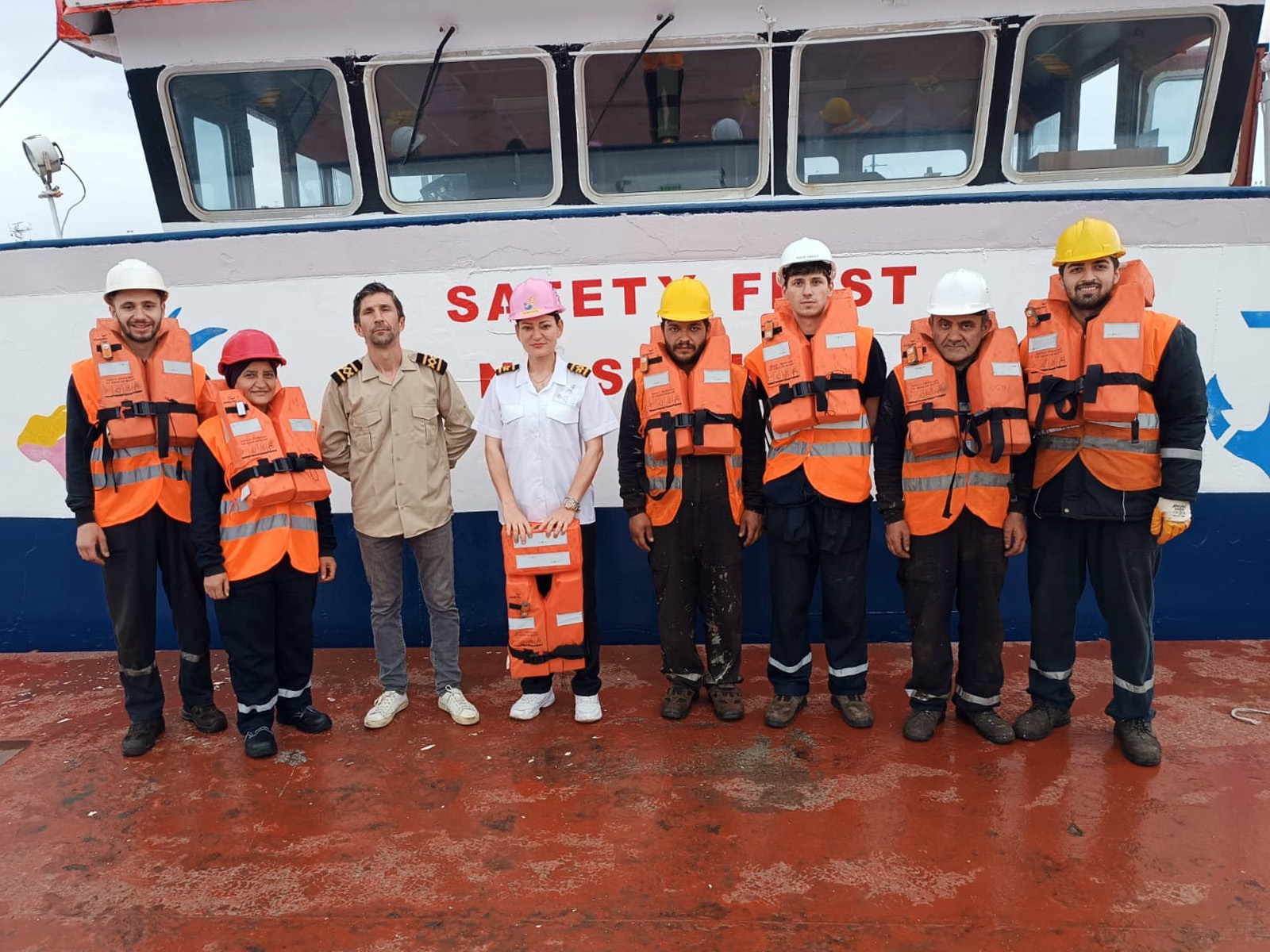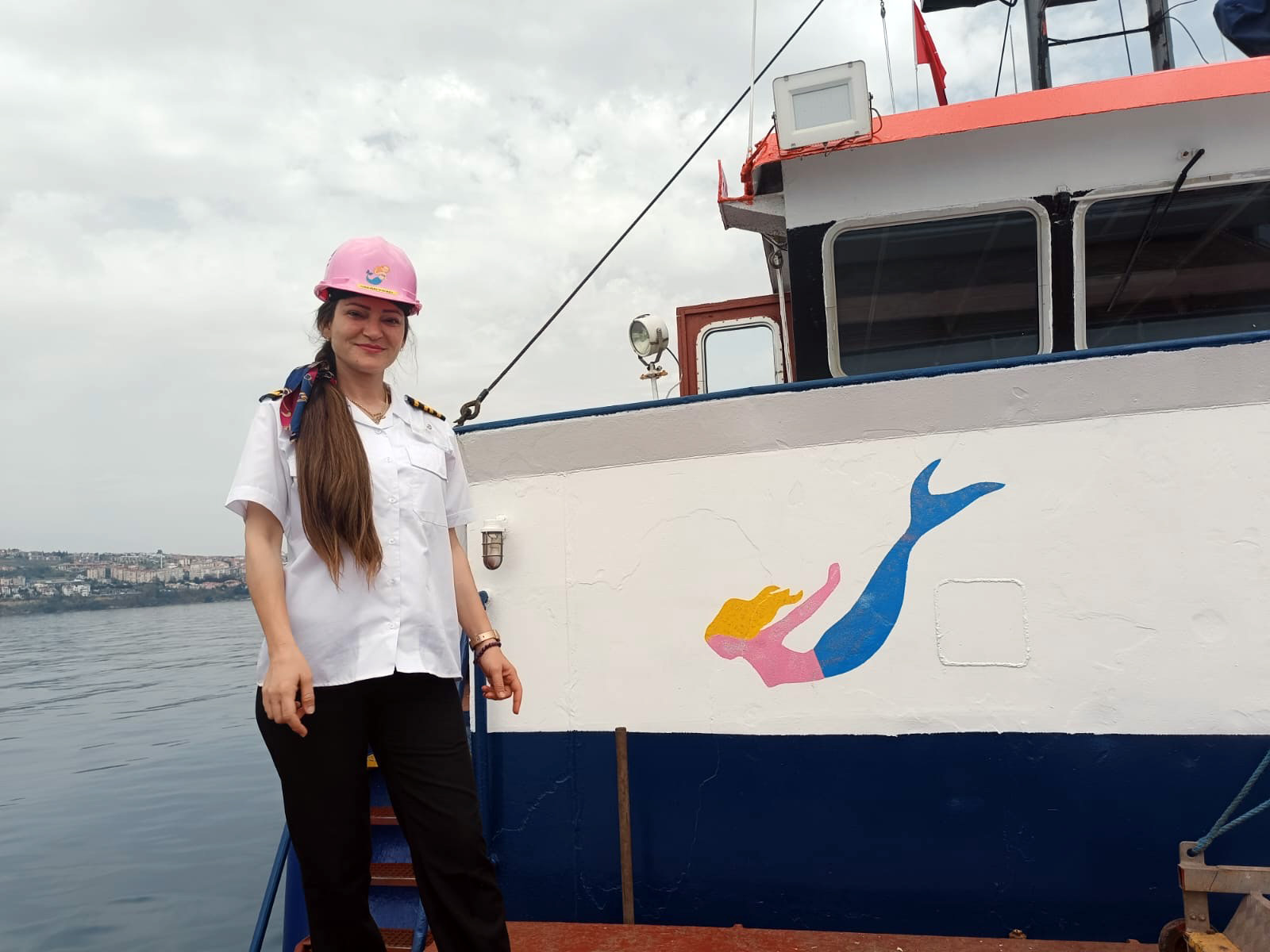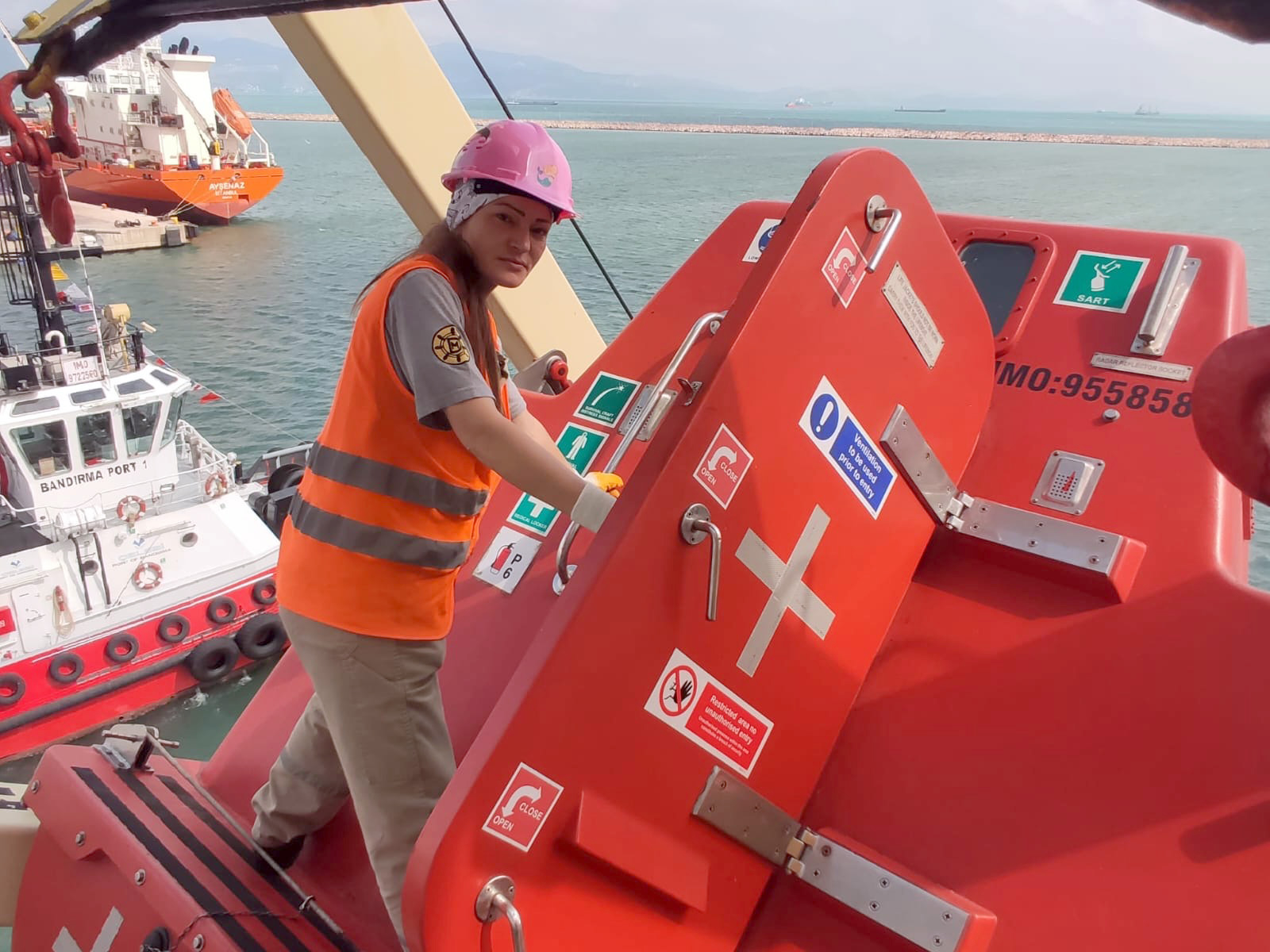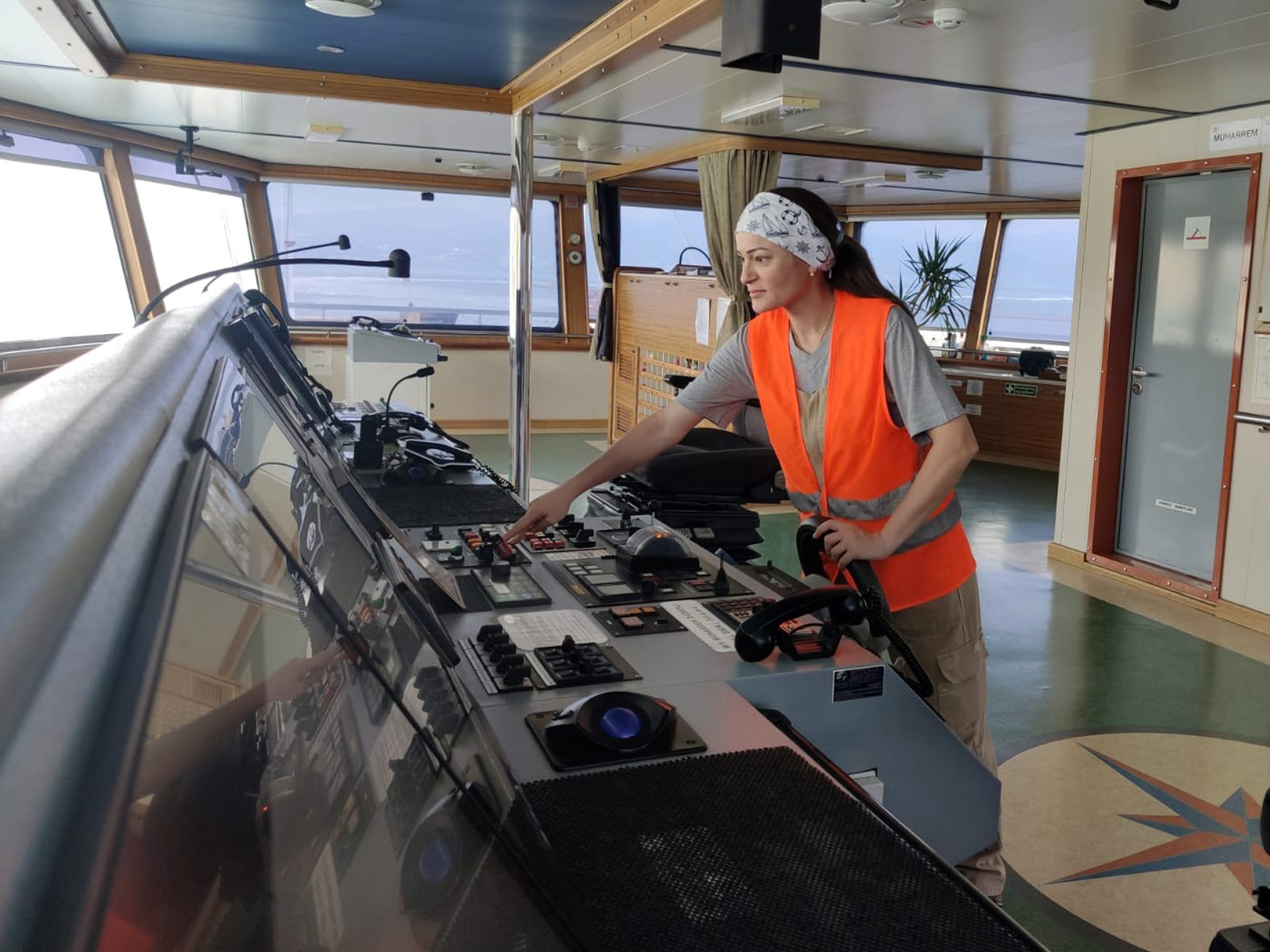Turkey’s first “sea person” Mehtap Karatepe
Turkey's first "sea person" Mehtap Karatepe
The history of seafaring has been written by people who sailed to places people had never been, who pushed habits and broke rules. One of these people is a woman, who changed the term "seaman" of centuries to "sea person", Mehtap Karatepe.
Ayşe Akdoğan: First of all, could you tell us about yourself? How did you get into the profession?
Mehtap Karatepe: Born in 1985 in Nevşehir, Cappadocia, I grew up in Antalya. I am the mother of two children and have a granddaughter. I worked in the health sector for many years, raised my children and set a route for them. Then, when I had no obstacle for traveling, I stepped into the profession of my dreams, seafaring.
AA: Isn't it hard to work away from home all the time?
MK: When you are far away you see different countries, you get to know different cultures. It has such an advantage. You understand the importance of your work much better. Of course, there are also disadvantages. Although internet communication is possible on many ships nowadays, sometimes it is not possible. For example, I couldn't attend my brother's wedding. I found out about my father's death two days later, I couldn't make it to his funeral. This is one of the most painful situations I have experienced at sea. Seafarers have to complete their contract after they step on board, unless there is a very urgent situation. Of course, it is not right to go and get off at the first port in every problem. These also reduce the prestige of the profession. This is a job of sacrifice. Unless you have a serious health problem, you should stick to your job on board.

AA: As a woman, what were the challenges you faced while practicing this profession at sea?
MK: Beyond the difficulties of the sea itself, there are difficulties you experience just because you are a woman. This is a male-dominated profession. If you are at the top of the chain of command, there are those who do not listen to you. Men who have grown up in a patriarchal environment do not want to take directives from women. You need to be resilient against this, you need to be strong, you need to have nerves made of steel. You may be subjected to mobbing. I have also experienced these things, but none of them discouraged me, on the contrary, they helped me become attached to this profession.
Male or female, we need to leave our identity on land and go to sea as sailors, as human beings. You need to stay away from all behaviors that will bring your gender to the forefront. I have always tried to be very careful about these issues. For example, there have been female cooks and female trainees on the ships I have worked on. I am currently the only woman on the ship as the captain, but I do not take any stance on the ship that would emphasize my gender. I pay special attention to this. Aside from that, because women are structurally more careful, they can do much more professional work. They can improve hygiene conditions. When they are present, there is less violence or foul language. Courtesy and respect come to the fore wherever women touch. Now big companies also see this and have started to really support women. This, for example, is a great success for women.
AA: You personally fought hard for the change of the term "seaman".
MK: When I first stepped on board, I was like a student starting primary school. Many things caught my attention for the first time. After I started working, I saw the term "seaman" everywhere. Not only that, but many terms are also like that. For example, "man overboard". In English, on the other hand, the ship is referred to as "she". So, it's a feminine pronoun. While thinking about this, I suggested to the Ministry of Maritime Affairs "to change the term "seaman" and my suggestion received a positive response. "As Turkey's first female seafarer", I started to work on ships shoulder to shoulder with my other male colleagues.
As my officers, captains and all my colleagues I worked with at that time saw my determination, they also sided with me. They completely removed that sexist discrimination. There are still people who cannot break that mentality. For example, there are people who say that women are bad luck at sea. If you move up in the chain of command from a lower position to a position with signing authority, for example if you become an officer, there are people who don't want to take direction from a woman. But I believe these will completely disappear over time.

AA: What would you like to say to young people considering a profession that requires so much sacrifice?
MK: As a woman sailor, I want to say this: You need patience, you need sacrifice and you need to have nerves made of steel. When you go out to sea, you may encounter storms, you may be busy, tired, sleep deprived. You have to be physically able to withstand all of this, and for this, your priority must be your work. This is exactly where a sailor should stand. The identity of a sailor requires to see the ship as home and to weave the blues as one's homeland. When you achieve this, no power can overcome you, I say this without discriminating between men or women.
AA: Where do you see yourself in 10 years?
MK: 10 years is a very short time at sea. Because while on land we take weeks as a basis, months as a basis, here we actually take our contracts as a basis. We plan our lives based on contracts of four months for tankers and six months for dry cargoes. When you say 10 years, if we subtract the time you spend on land and the time off, we are left with a period of 10 contracts. This seems like a very short period of time to me. I started from the basics, from seafaring, but training is very important because the sea does not accept mistakes. I have reached this point by conducting my working life together with my education. I hope, I will continue to do this as long as my health permits, as long as life permits. I will never be ready to say goodbye to the sea, I am sure of that.

Interview: Ayşe Akdoğan, Setur Marinas Yalova Front Office Representative


